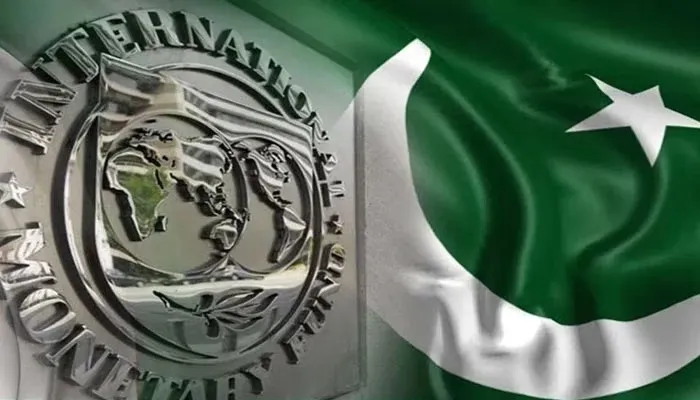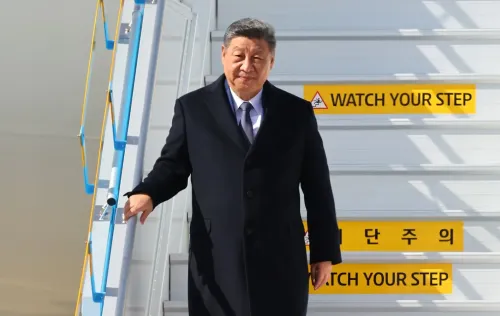Has Pakistan Secured the IMF Funding and Budget Talks?

Synopsis
Key Takeaways
- Pakistan is beginning virtual discussions with the IMF on its fiscal budget.
- The country received $1.023 billion as part of the second tranche of IMF funding.
- Upcoming budget discussions are crucial for aligning with IMF requirements.
- The fiscal budget for 2025-26 is anticipated to present significant challenges.
- Pakistan aims for a primary budget surplus of 1.6% of GDP.
Islamabad, May 14 (NationPress) Pakistan is set to initiate virtual discussions with the International Monetary Fund (IMF) regarding the nation's forthcoming fiscal budget. This follows a delay in the IMF mission's visit due to security concerns stemming from ongoing tensions with India, which have disrupted flight operations across the country.
Sources indicate that these virtual discussions are of utmost significance as the government will present the proposed budget details to the newly-appointed IMF mission chief for Pakistan.
"There is still hope that the new mission chief will be able to visit Islamabad over the weekend, depending on the security situation. However, the shift to virtual discussions is not expected to impact the original program schedule," stated an official.
The first round of virtual discussions is projected to commence on Wednesday and will span at least three days.
"The initial discussions will take place virtually. The IMF team is anticipated to arrive in Islamabad for the second leg of the talks on Saturday, remaining until May 23," a source revealed.
These discussions coincide with Pakistan receiving its second tranche of funding from the IMF under the Extended Funding Facility (EFF).
The State Bank of Pakistan confirmed the reception of Special Drawing Rights (SDR) amounting to Rs 760 million ($1.023 billion) as part of this second tranche, which will be reflected in the nation’s foreign exchange reserves.
This latest disbursement followed an approval from the IMF Executive Board on May 9. The IMF also sanctioned a $1.4 billion funding arrangement under the Resilience and Sustainability Facility (RSF) to bolster Pakistan’s climate resilience initiatives during the meeting.
The IMF has appointed Iva Petrova as the new mission chief for Pakistan, who will lead discussions alongside Nathan Porter, the outgoing mission chief known for his strict stance on policy issues and close monitoring of the finance ministry’s media policies.
“Pakistan is set to reveal the budget for fiscal year 2025-26 on June 2, marking the second budget presentation by the current finance minister, Muhammad Aurangzeb. The budget must align with parameters established during discussions with the IMF,” a government source emphasized, underlining the critical nature of these budget discussions.
Experts anticipate that the fiscal budget for 2025-26 will pose challenges for both the government and the general populace.
“Pakistan is expected to draft the budget based on an assumption of a primary budget surplus of 1.6 percent of the country’s GDP. This necessitates generating at least Rs two trillion beyond non-interest expenses,” remarked economic expert Shahbaz Rana.
The proposed tax target for the Federal Board of Revenue (FBR) is expected to be at least 11 percent of GDP. The IMF will assess whether the Pakistani government is establishing credible, realistic targets and measures to support its new tax objectives,” he added.
The defense budget is also likely to see an increase, with the overall budget estimated at around Rs 18 trillion.
“The anticipated overall budget deficit, accounting for significant provincial cash surpluses, is projected at 5.1 percent of GDP or Rs 6.7 trillion,” Rana stated.
Conversely, the IMF has set multiple preconditions that Pakistan claims it has satisfied despite initial challenges.
“Pakistan has achieved the IMF targets for a primary budget surplus at the federal level, alongside net revenue collection and cash surplus targets from the four provinces. Thus, discussions concerning the upcoming fiscal budget may not be as challenging,” Rana explained.
“However, the FBR has significantly faltered in various areas regarding enforcement measures, including track and trace, compliance risk management, and the retailers’ scheme, failing in its tax collection efforts,” Rana added.
Pakistan remains optimistic that its past performance and the recent disbursement of the second tranche from the IMF will demonstrate its compliance with IMF conditions, paving the way for fruitful discussions leading to the fiscal budget in June 2025.









